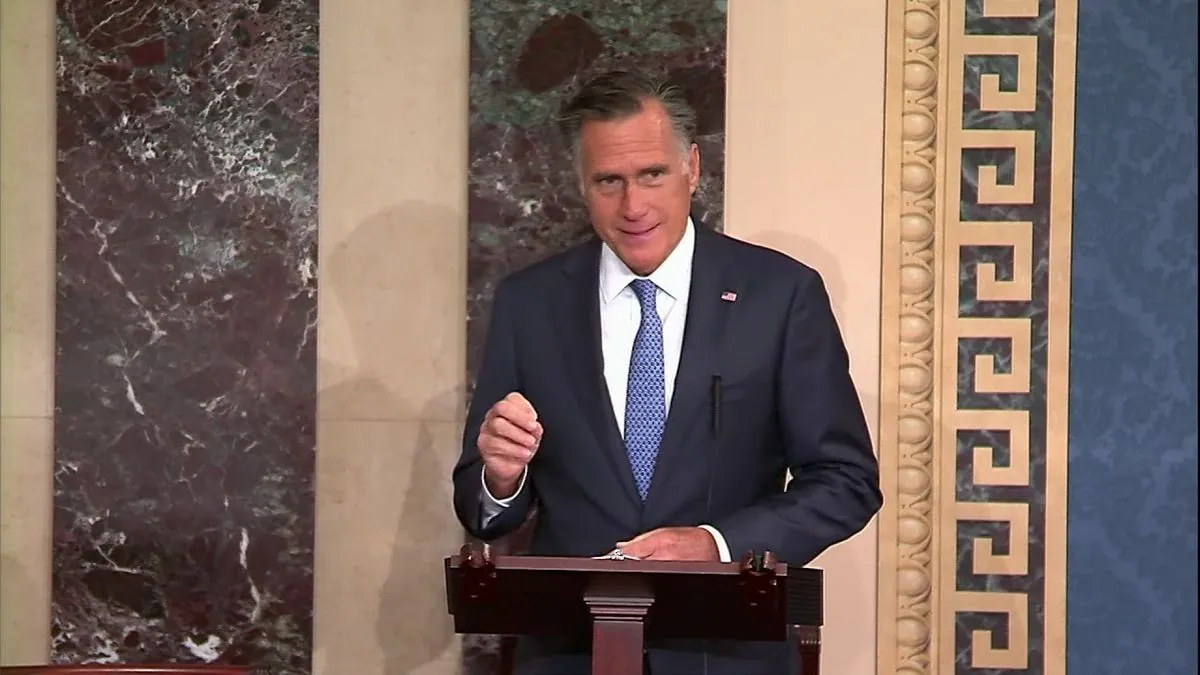As the 2024 U.S. presidential election draws near, Mitt Romney, the Republican senator from Utah, finds himself in a unique position. Despite being a vocal critic of former President Donald Trump, Romney has refrained from endorsing Vice President Kamala Harris, the Democratic nominee.
Romney, who was the Republican Party's presidential nominee in 2012, has consistently opposed Trump's influence on the GOP. He was the sole Republican senator to vote for Trump's conviction during the 2020 impeachment trial. However, Romney's reluctance to endorse Harris stems from various factors, including concerns for his family's safety and a desire to maintain influence within the Republican Party.
The senator's stance is particularly noteworthy given the current political landscape. Many anti-Trump Republicans have publicly declared their support for Harris, with the campaign launching a "Republicans for Harris" initiative. This group includes former Trump officials like Anthony Scaramucci and Stephanie Grisham, as well as prominent GOP figures such as Liz Cheney, Dick Cheney, and Alberto Gonzales.
Romney's hesitation to endorse Harris is rooted in several considerations:
- Family safety concerns
- Desire to preserve influence in the GOP
- Ideological differences with Harris
- Questioning the impact of his endorsement
In a recent interview, Romney expressed anxiety about potential repercussions for his family if Trump were to be re-elected. He also cited his wish to maintain a position of influence within the Republican Party post-election.
"My particular vote doesn't have a big impact: I'm from Utah. In my case, having been the former nominee of the Republican Party, I want to make sure that I'm in a position after this election to have some influence on the direction of our party in the future."
Romney's situation highlights the complex dynamics within the Republican Party. As the first member of the Church of Jesus Christ of Latter-day Saints to be a major party presidential nominee, Romney's political journey has been unique. His father, George Romney, served as Governor of Michigan from 1963 to 1969, further emphasizing the family's political legacy.
The upcoming election, scheduled for November 5, 2024, is expected to be closely contested. Swing states like Michigan, where Romney has familial ties, could play a crucial role in determining the outcome. The U.S. presidential election system, which uses an Electoral College rather than a direct popular vote, adds another layer of complexity to the race.
As the election approaches, the significance of endorsements from figures like Romney remains a topic of debate. While some argue that such endorsements provide a "permission structure" for hesitant voters, others, like Senator Tom Cotton of Arkansas, question their overall impact.
Regardless of Romney's final decision, his stance underscores the ongoing tensions within the Republican Party and the challenges faced by those seeking to chart a new course in a post-Trump political landscape.
